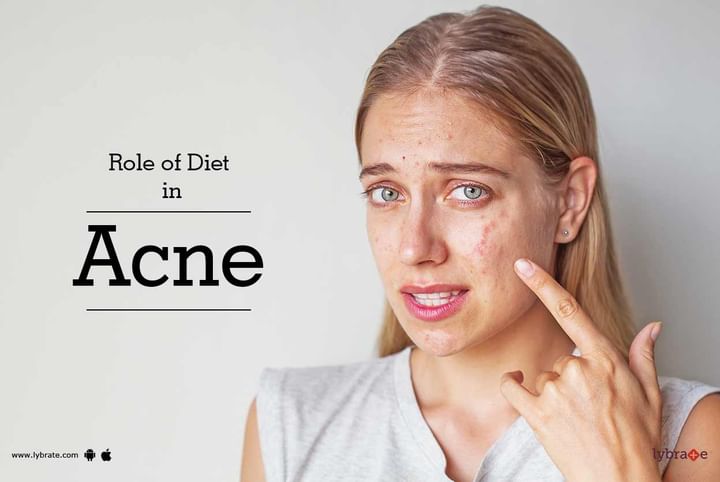Role of Diet in Acne
Acne is a common skin disease, which happens when the hair follicles becomes full with dead skin cells and oil secreted from the skin. Acne is mainly characterized by vast areas of blackheads and pimples. The appearance of a person suffering from acne has often led to anxiety, and in extreme cases has caused depression as well.
Causes of Acne:
- Genetics is thought to be one of the main reasons for hair fall due to acne. This is supported both by twin studies and studies that have shown higher rates of acne among first degree relatives. Acne susceptibility is polygenic as the disease does not follow the Mendelian inheritance pattern.
- Another reason for acne is related to hormonal activities, such as those during menstrual cycle and puberty. During puberty, sex hormones called androgens increase, which causes the follicular glands to grow larger than normal. Many hormones like testosterone, dihydrotestosterone, dehydroepiandrosterone sulfate and growth hormone have been shown to have links with acne.
- Many bacteria like the anaerobic bacterium are suspected to be a reason behind acne. Infection caused by the parasite Demodex is also responsible for causing acne.
Role of Diet in Acne:
Different studies have been done to establish a relationship between diet and acne, but there is no evidence to prove so. Some tests have shown different degrees of acne intensity due to high glycemic diets. Another unproved study shows consuming dairy milk is linked to higher incidences and intensity of acne. One recent experiment has shown a relationship between acne and obesity, however, no relationship is found between acne and insulin metabolism. Vitamin B12 may cause skin problems similar to acne.
Cigarette smoking and acne has been a ground for high debate among biologists. Some medical records have shown that cigarette smoking increases the severity of acne. Some studies have also shown that stress or other psychological causes worsens acne. Acne severity is linked to high stress levels.
Symptoms:
- Scars are a common symptom of acne. Acne scars are caused due to inflammation in the skin dermal layer. The scar is made by an abnormal form of healing after the inflammation. These scars are classified on the basis of whether excess collagen or collagen loss is caused by the abnormal inflammation.
- Nodular acne lesions cause pigmentations. This often leaves a red, inflamed mark even after the lesion has been cured.
Treatment:
- A diet low on glycemic index is recommended for treating acne.
- Benzoyl peroxide is the first step in treating mild to moderate acne. This is because of its high effectiveness and mild side effects. The peroxide causes drying of the skin as a side effect.
- Antibiotics are very much used for treating acne. Oral antibiotics are highly recommended. This is because of their anti-inflammatory properties.
- Azelaic acid when applied at 20% concentration is effective for treating mild to moderate acne.
- Natural treatment methods include applying tea tree oil or bee venom to reduce the amount of lesions in acne.



+1.svg)
